Phonics practice Phonics Worksheets
17 filtered results
-
From - To
Unlock your child's reading potential with our "Phonics Practice Worksheets"! Designed for early learners, these engaging worksheets offer a fun and interactive way to master phonics skills. Each worksheet focuses on different phonetic sounds, helping children recognize letters and build essential reading foundations. Our printable resources cater to various learning styles, ensuring every child can thrive through meaningful activities. Simple instructions guide parents and teachers, making it easy to incorporate phonics practices into daily routines. Explore our collection and support your child's literacy journey, fostering a love of reading that lasts a lifetime! Perfect for home or classroom learning. Start practicing today!
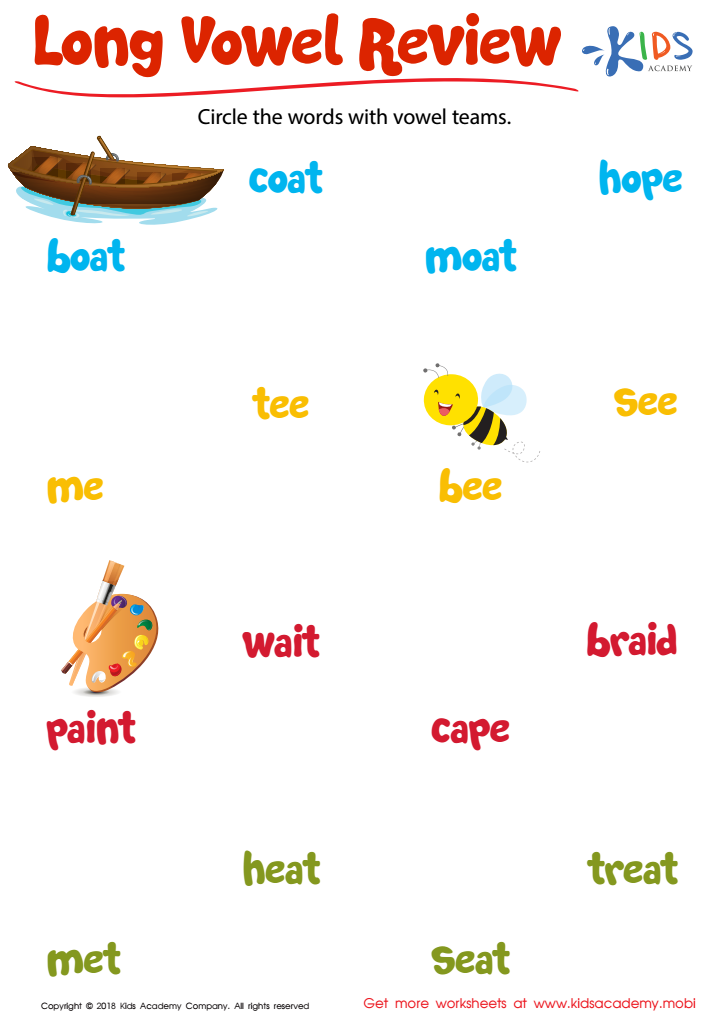

Long Vowel Review Worksheet
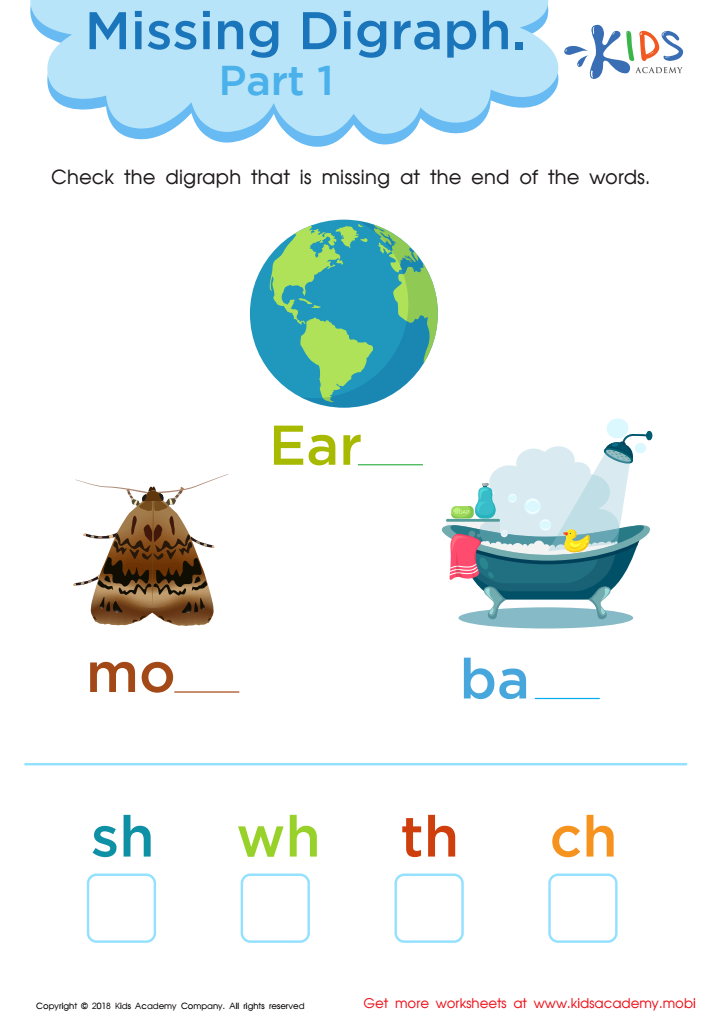

Missing Digraph: Part 1 Worksheet
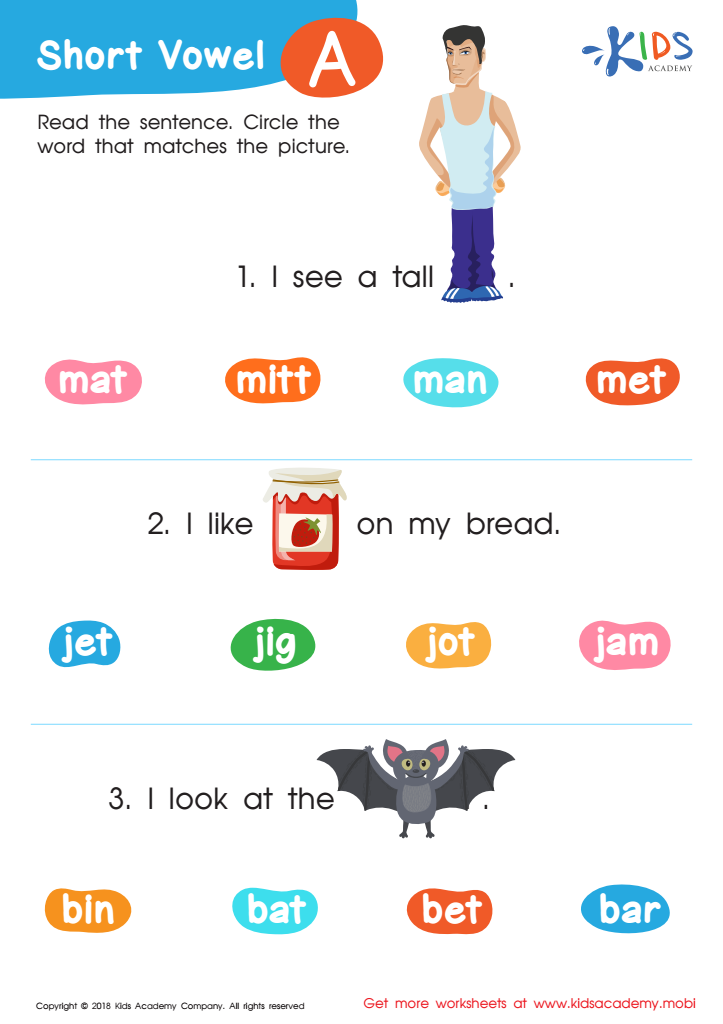

Short Vowel /a/ Worksheet
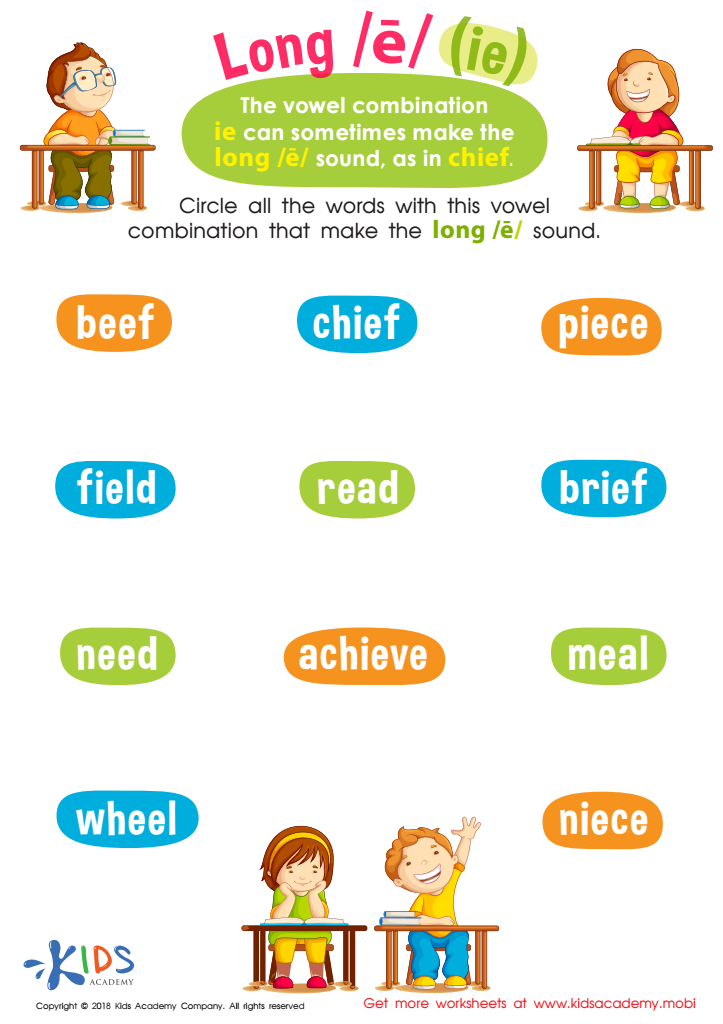

Reading: Long E and IE Worksheet
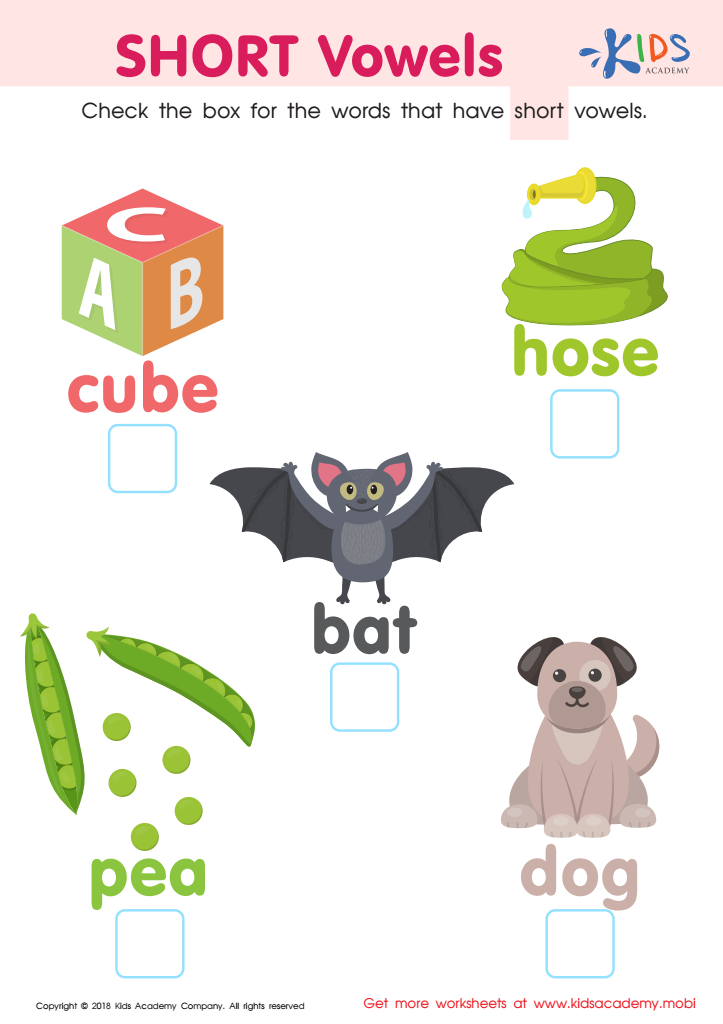

short vowels Worksheet
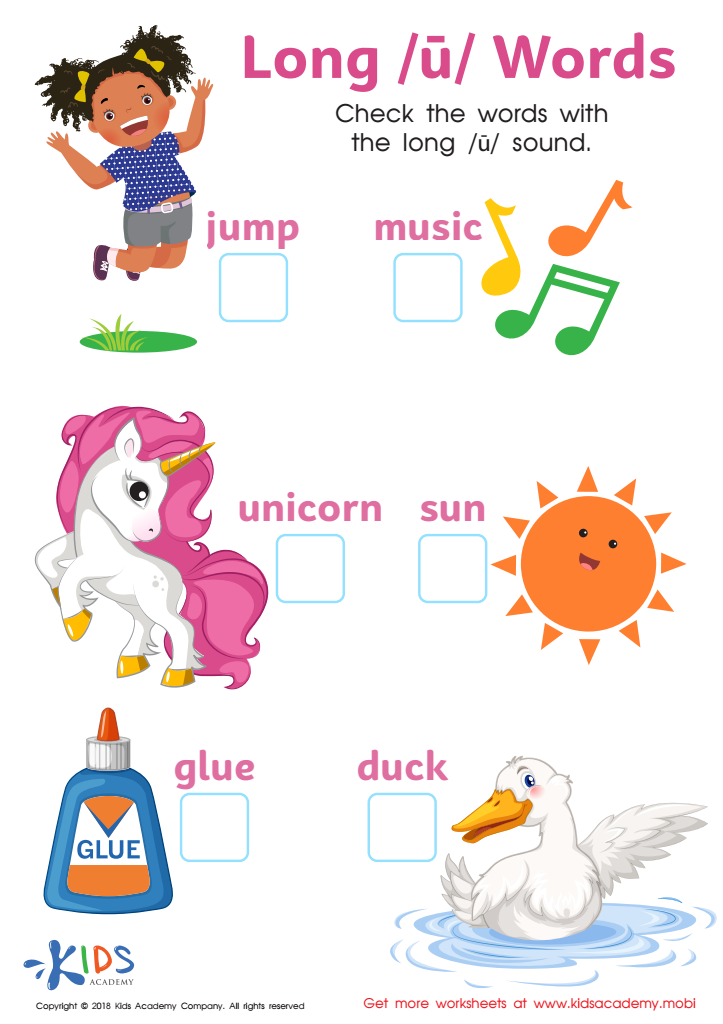

Long U Words Reading Worksheet
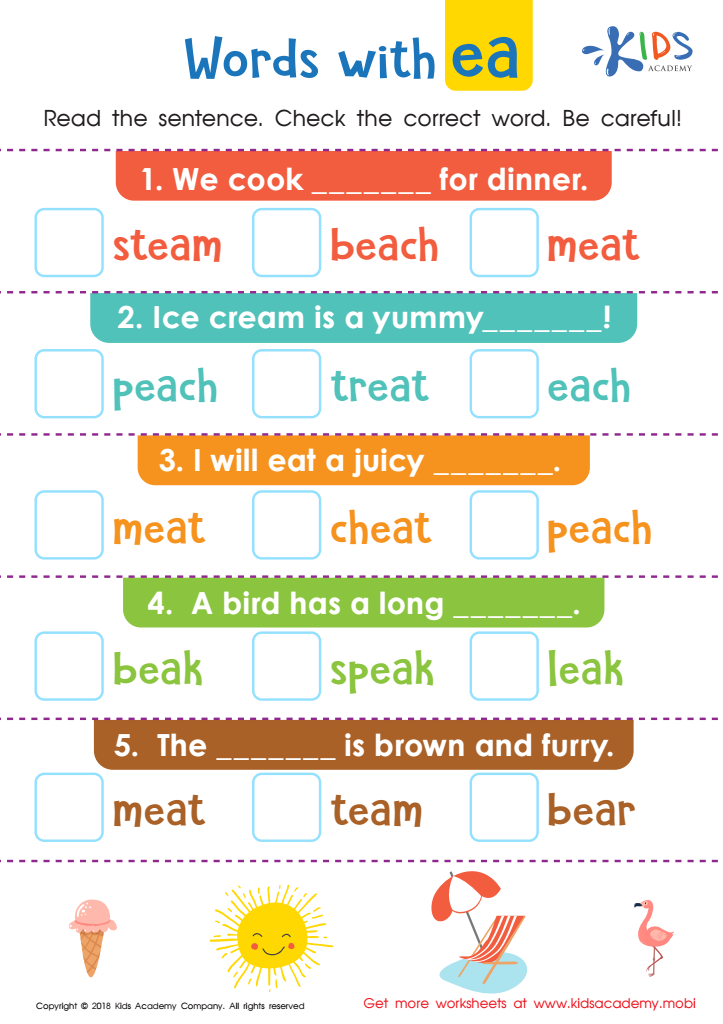

Words with ea Worksheet


Twin Onset Worksheet
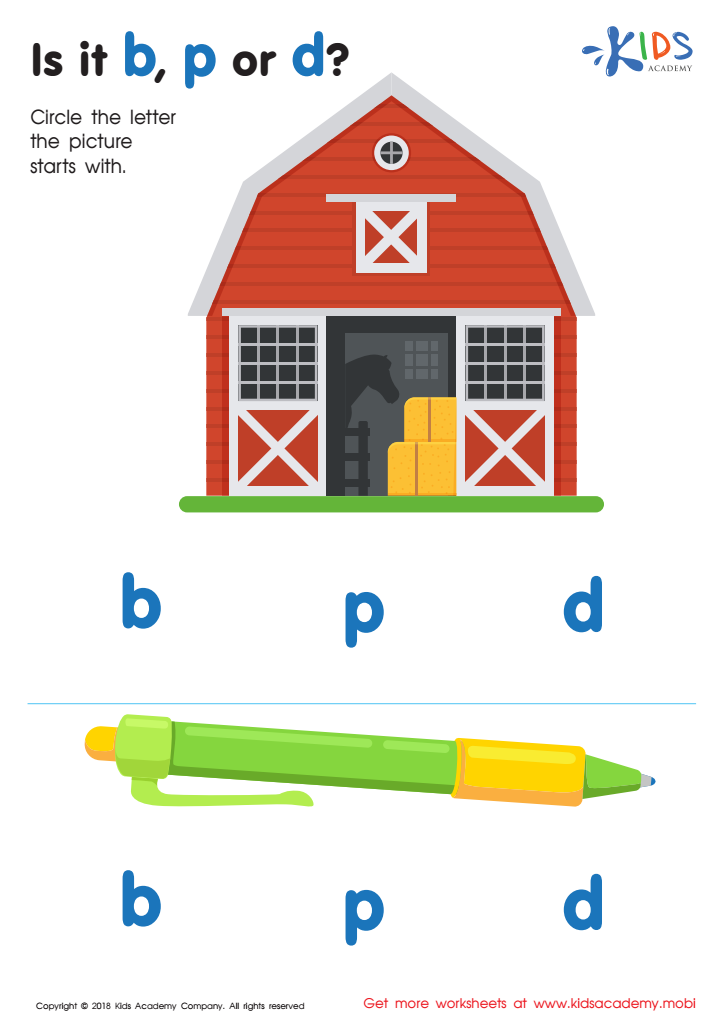

Is it b, p or d? Worksheet


Short Vowel Eggs Worksheet
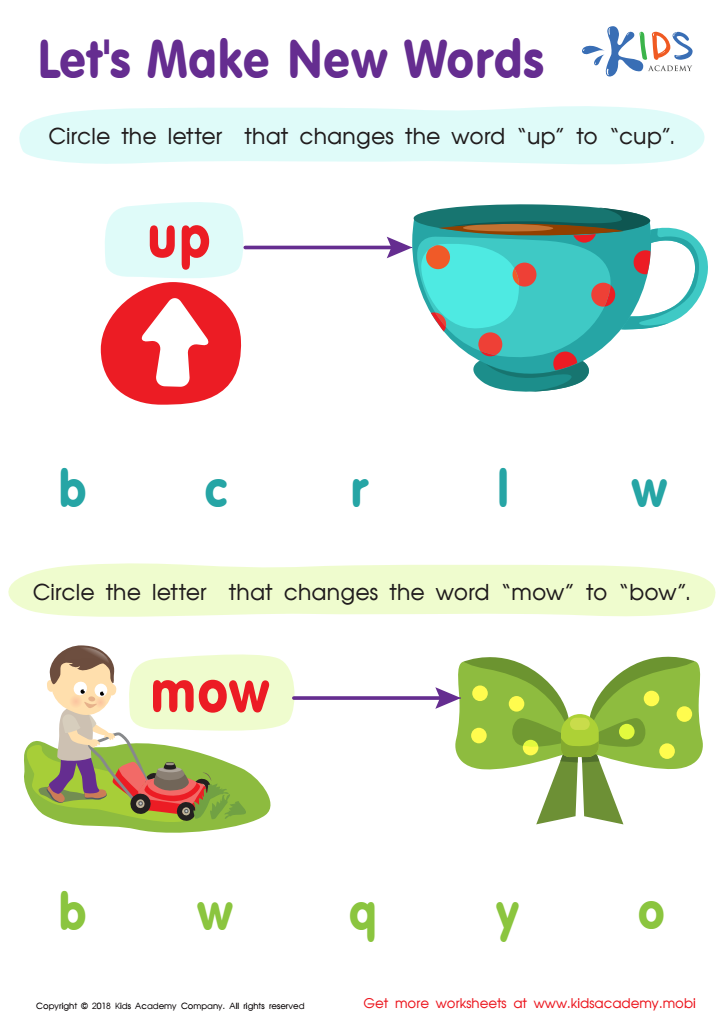

Let's Make New Words Worksheet


Words with sound p Reading Worksheet


Words with sound f Reading Worksheet
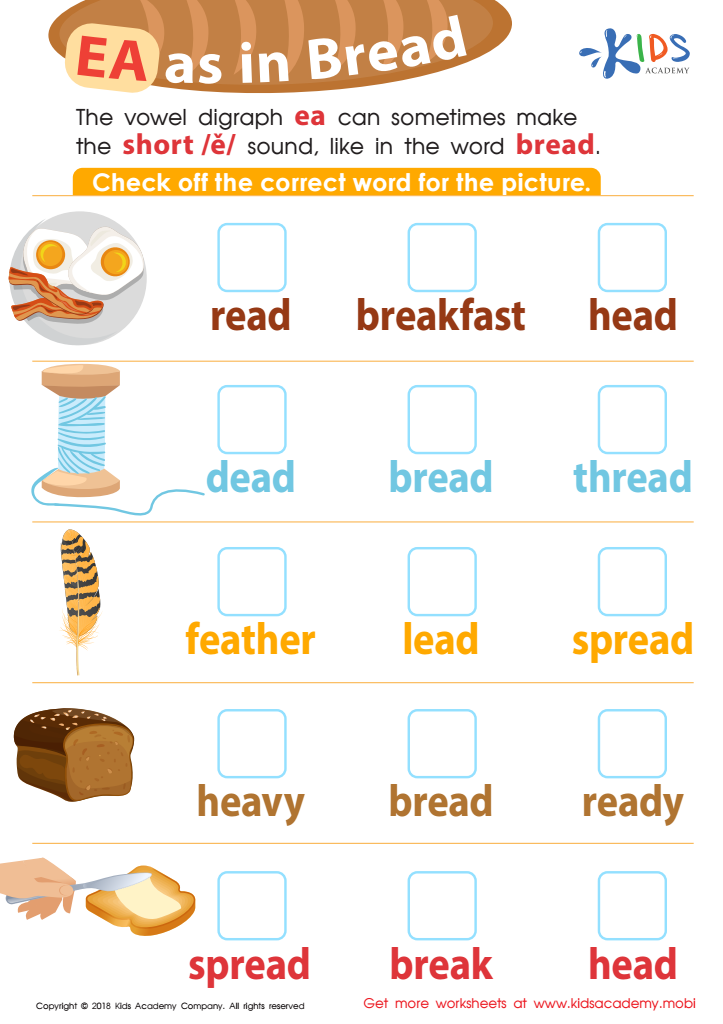

Reading: EA as in Bread Worksheet
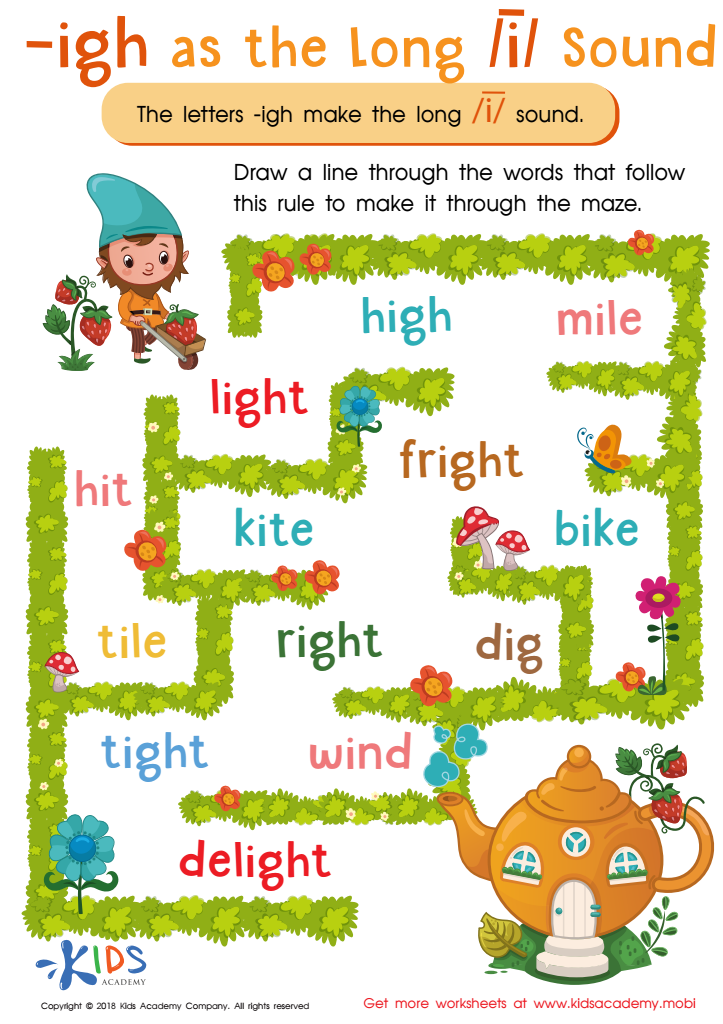

Reading: IGH as Long I Worksheet
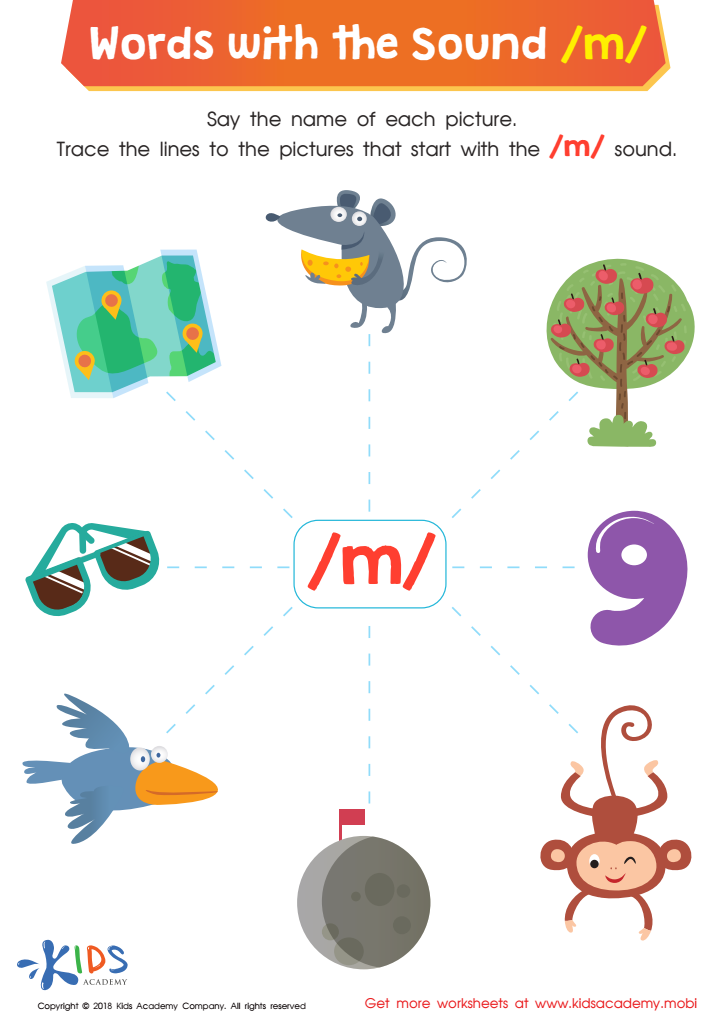

Words with Sound M Reading Worksheet
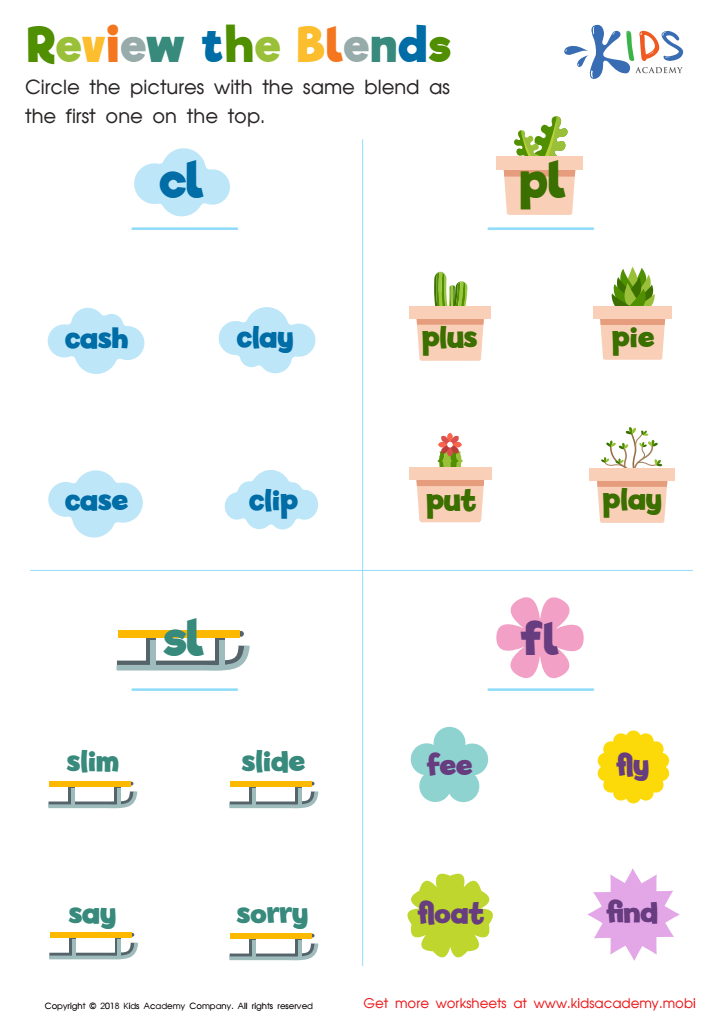

Review the Blends Worksheet
Phonics practice is essential for early literacy development, making it a key focus for both parents and teachers. This systematic method of teaching reading connects sounds (phonemes) with letters (graphemes), allowing children to decode words and build a strong reading foundation. Understanding phonics enhances children’s ability to read independently, which fosters confidence and a love for reading.
When children practice phonics regularly, they improve their spelling, pronunciation, and vocabulary. This laid groundwork not only aids in early reading but also facilitates comprehension and critical thinking as children progress in their education. With the ability to read comes access to new knowledge and a broader understanding of the world around them.
Moreover, phonics practice encourages parental involvement, creating opportunities for parents to engage with their children’s learning at home. Teachers also benefit by using phonics as a structured approach to teaching diverse groups of learners, making it easier to track progress and adapt instruction tailored to individual needs.
Overall, prioritizing phonics practice helps equip children with essential reading skills, supporting their educational journey and lifelong learning. By emphasizing phonics, parents and teachers collaboratively can nurture competent, confident readers who are prepared for future academic success.
 Assign to My Students
Assign to My Students

















